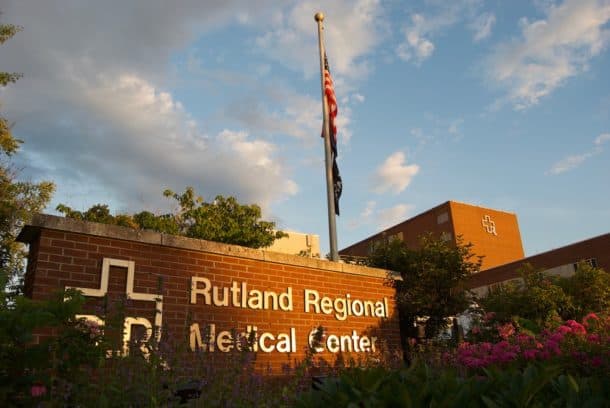By Liora Engel-Smith/VTDigger
Earlier this week, state regulators ordered Vermont’s second-largest hospital to cover a projected multimillion-dollar deficit without raising prices.
The dust had barely settled on that decision Friday morning, but already reality was setting in for Rutland Regional Medical Center’s chief executive. Reflecting on the fateful Green Mountain Care Board decision, last Wednesday, March 30, CEO Claudio Fort couldn’t help but feel that regulators didn’t get the message.
“We really tried to say, ‘Hey, here’s the story, here are the rules’ and I think the challenging part for us is feeling unheard,” Fort said.
Rutland Regional requested a 9% increase in charges in the middle of this fiscal year to cover inflation and ballooning staffing costs, but the care board denied the request because of the impact that would have on small businesses.
Over the course of three hearings in recent weeks, Rutland executives warned that denying the price increase could lead to painful cuts in necessary services. They argued that dipping into the hospital’s $261 million reserve puts the hospital’s long-term financial stability at risk.
On Friday, Fort softened his assessment. Executives are ready to dip into the reserves, he said, but they’re also mulling a reduction in some services, though not right away. A raise in charges would have given the hospital “breathing room,” but Rutland Regional is prepared to do without, he indicated.
“Rutland Regional is not going to close its doors or have to cut services because there’s a $7.5 million loss,” Fort said. “It’s not what we do.”
In the world of hospitals — for-profit or nonprofit — deficits often precede cuts in loss leader services such as mental health or labor and delivery. Springfield Hospital, for example, recently discontinued its labor and delivery unit after emerging from bankruptcy.
But Fort stressed that the Rutland hospital is much better off, though some belt-tightening measures may be on the horizon. He vowed to take into account the impact on patients and the community when cutting costs.
Rutland hospital executives have already said they plan to discontinue retention and shift bonuses for staff members in the near future, bonuses that were instituted not only to reward current staff, but to decrease reliance on temporary staff.
Fort said the hospital may scale back or abandon its plan for helping employees find housing.
Hospital leaders are still fleshing out the plan, Fort said, and it’s not yet clear what services, if any, would have to be rolled back and by how much.
Rutland Regional wasn’t alone in requesting a change in charges. The state’s largest hospital operator, University of Vermont Health Network, also went before the Green Mountain Care Board this week seeking a 10% increase in charges for two of its hospitals, UVM Medical Center in Burlington and Central Vermont Medical Center in Berlin.
The board is expected to vote on UVM Health Network’s request as early as next week. The state’s remaining nonprofit hospitals, all of them smaller, have not made similar requests to date. The deadline for filing requests for midyear budget adjustments is May 1.




